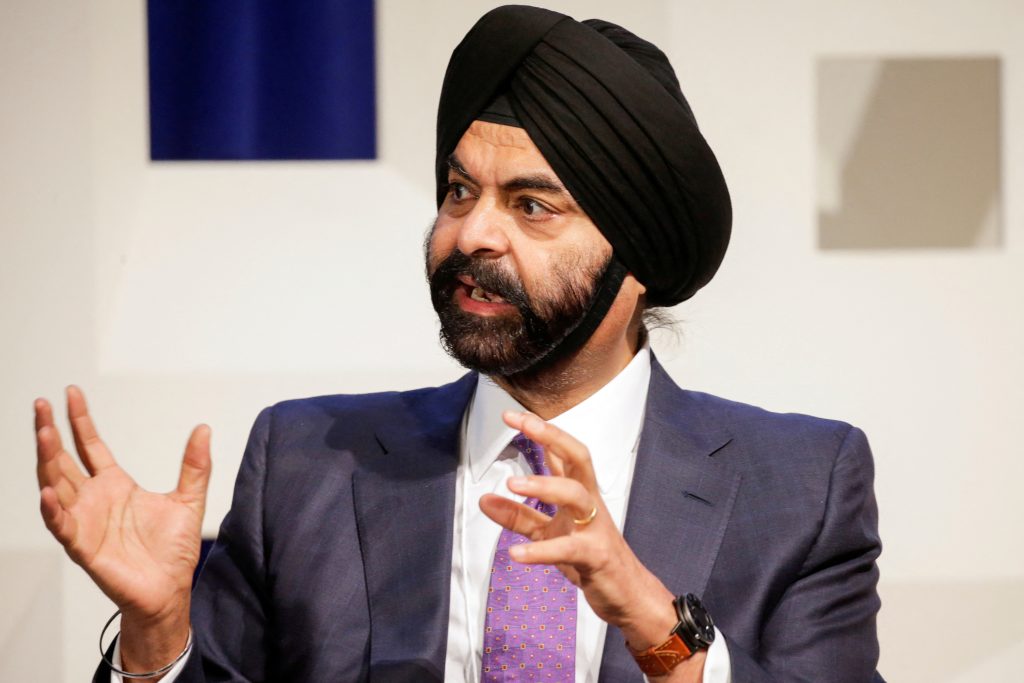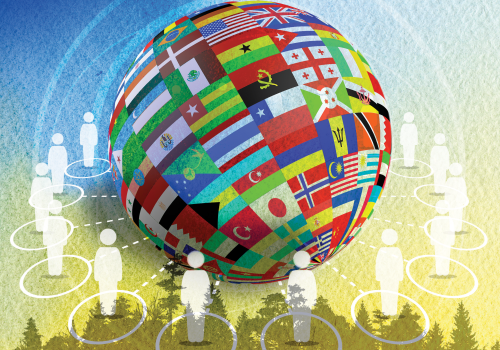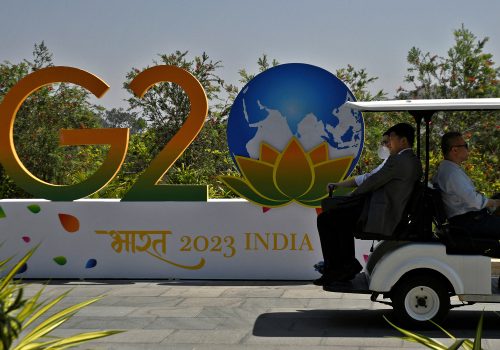By most accounts, US President Joe Biden’s nomination earlier today of Ajay Banga to lead the World Bank was a surprise. Banga was “not on the short list and not someone even being mentioned as an outside candidate,” explains Josh Lipsky, senior director of the Atlantic Council’s GeoEconomics Center and a former International Monetary Fund (IMF) adviser.
In part, the shock came because Banga hails from the private sector. He is the vice chairman of the private equity firm General Atlantic and a former chief executive officer of Mastercard. Names floated as potential nominees in recent weeks favored current and former government officials.
Banga’s nomination comes after the current World Bank president, David Malpass, announced that he will step down in June, ahead of the end of this five-year term. It also comes as the nearly eighty-year-old organization faces an array of global crises, from the COVID-19 pandemic and food insecurity to climate change. In fiscal year 2022 alone, the World Bank provided more than $104 billion in loans, equity investments, grants, and guarantees to partner countries and private businesses.
Below, experts from our GeoEconomics Center answer the burning questions around this announcement.
Do you expect any pushback on Banga’s nomination?
Other countries can put forward their nominees, and then the World Bank’s executive board will consider the nominees. The board has signaled they will decide by the end of May. However, per an informal agreement at the creation of the Bretton Woods Institutions in 1944, the United States has always chosen the World Bank president and has always selected an American. The Europeans are informally granted the privilege of selecting the head of the IMF (currently Kristalina Georgieva, a Bulgarian economist who was actually a former acting president of the World Bank herself). It is possible that other countries from emerging markets may try to oppose this arrangement this time around, but it seems unlikely that they could prevent Banga from ultimately being selected.
—Josh Lipsky is the senior director of the GeoEconomics Center.
There has been explicit signaling from the World Bank’s executive board, as well as a push from the nongovernmental-organization community, including ONE, that it’s time for a woman to (finally) helm the World Bank. There has also been an increasing sense that emerging markets and developing economies should have a stronger role in governance. With this nomination of Banga, we could very well see an alternative candidate emerge.
—Nicole Goldin is a nonresident senior fellow with the GeoEconomics Center and the global head of inclusive economic growth at Abt Associates.
What does Banga’s nomination reveal about how the Biden administration views the World Bank?
The US nomination of Banga as the next president of the World Bank seems to convey the priorities the Biden administration expects from the institution going forward. Besides sharing the administration’s concerns about mobilizing resources to combat the effects of climate change, Banga brings to the table his track record as a successful chief executive officer of Mastercard, skill in mobilizing public and private capital, and experience doing business in developing countries. These skills and knowledge are important in leading the World Bank in the period ahead.
—Hung Tran is a nonresident senior fellow with the GeoEconomics Center and a former IMF official.
Selecting a former leader of a major international company (which is not the typical mold for a president) suggests that the United States is focused as much on internal reform of the bank as it is on changing World Bank lending policy on climate and China. Reforming the inner workings of the World Bank has been a perennial mission for the institution’s presidents, and it’s unclear if Banga will have more success than others.
We have done work on this issue at the Atlantic Council through our Bretton Woods 2.0 project, and what we show is that the World Bank’s ability to lend effectively to countries around the world ties directly to how it is structured internally.
—Josh Lipsky
What is the most pressing issue the next World Bank president will face?
The next World Bank president will have to contend with compounding crises: COVID-19, climate change, and conflict. The fallout from them includes learning loss, the reversal of gains against poverty, inflation and food insecurity, widening inequality between and within countries, and debt.
—Nicole Goldin
While the White House announcement of Banga’s nomination highlighted climate change among “the most urgent challenges of our time” facing the World Bank, there are several other issues that will require his immediate attention, notably the debt crisis that has enveloped dozens of countries since the COVID-19 pandemic hit. An estimated 60 percent of low-income countries are in, or at high risk of, debt distress, and a solution to their plight has been elusive because of an impasse in getting private-sector lenders and China (the World Bank’s third-largest shareholder) to agree to debt-restructuring deals.
The US government and Malpass have repeatedly criticized China over the issue, and the White House likely will expect Banga to keep up the pressure. But as China cuts its lending to developing countries, the World Bank will face calls to increase its commitment of funds not just to climate change programs, but in traditional areas such as infrastructure and poverty reduction.
—Jeremy Mark is a nonresident senior fellow with the GeoEconomics Center. He previously worked for the IMF and the Asian Wall Street Journal.
Further reading
Mon, Oct 17, 2022
Modernizing the Bretton Woods Institutions for the twenty-first century
Report By Ajay Chhibber
The challenges that led to World War II have resurfaced and created the dire need for reform of the Bretton Woods Institutions. A new system to address these challenges requires the three core "Rs"—a revised global remit, an enhanced resource base, and a mandate to monitor agreed-upon global rules.
Mon, Oct 17, 2022
Changing Bretton Woods Institutions: How non-state and quasi-state actors can help drive the global development agenda
Report By
This new report examines the increasingly influential role of non-state and quasi-public actors in global development and sustainable finance, specifically through the rising level of sustainable investments in emerging and development markets.
Wed, Feb 22, 2023
China and private lenders are blocking a solution to the global debt crisis. The G20 must step in.
New Atlanticist By
The international community must apply pressure so that China and private-sector lenders join in facilitating a collective haircut that includes all lenders.
Image: Mastercard President and CEO Ajay Banga speaks to attendees during the Department of Homeland Security's Cybersecurity Summit in Manhattan, July 31, 2018.



